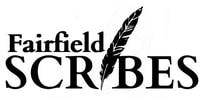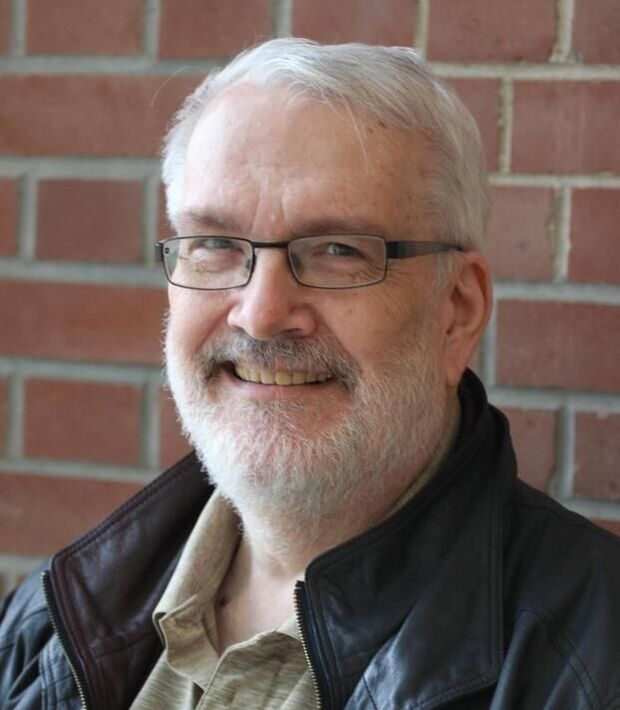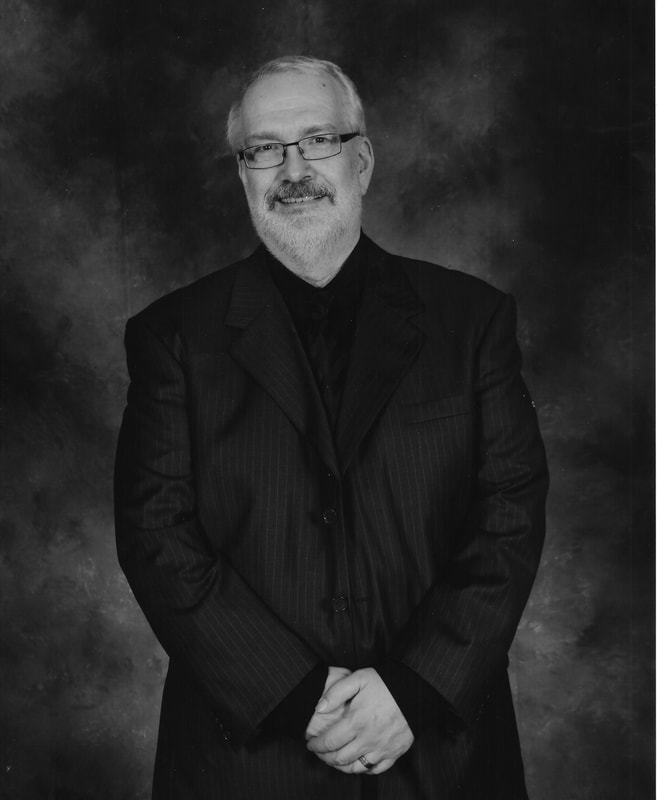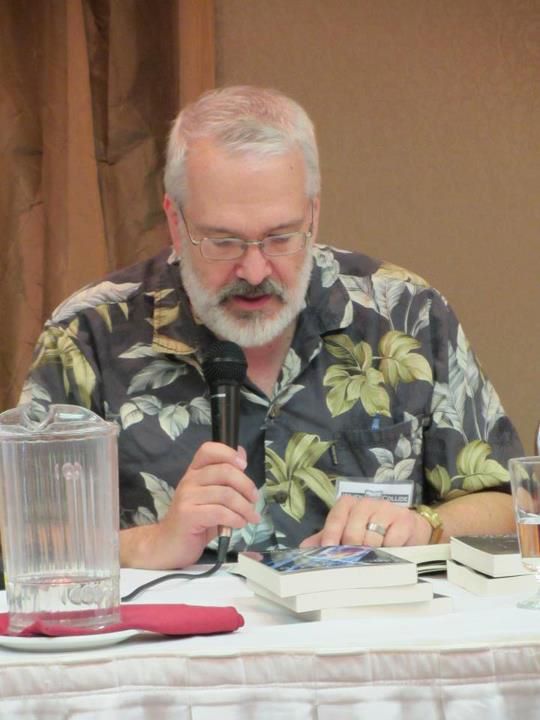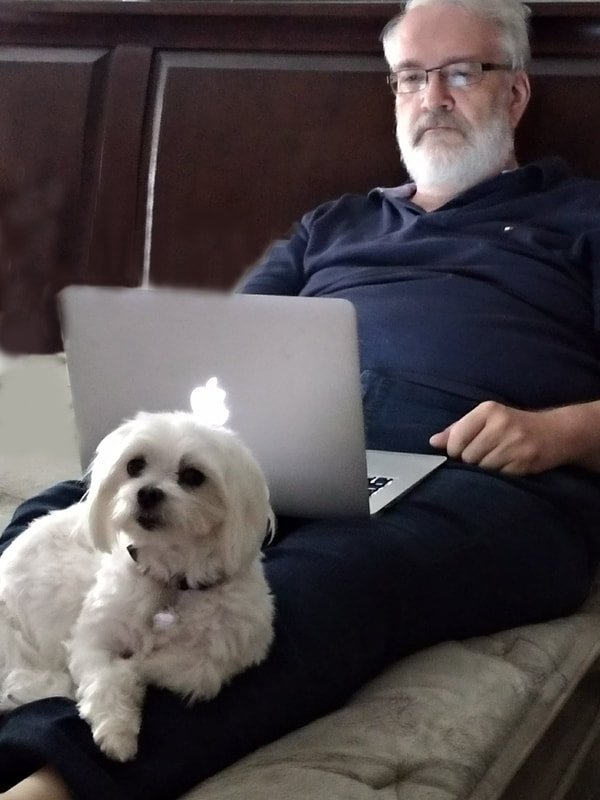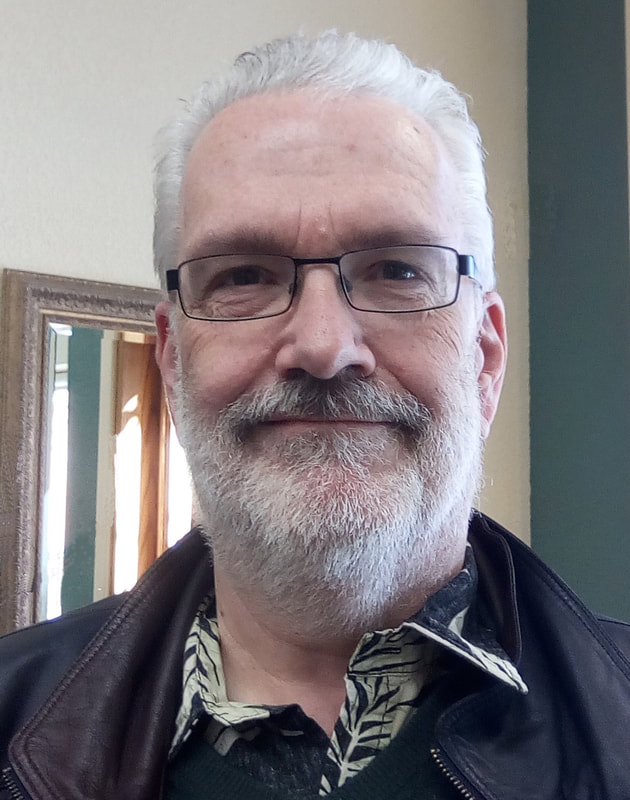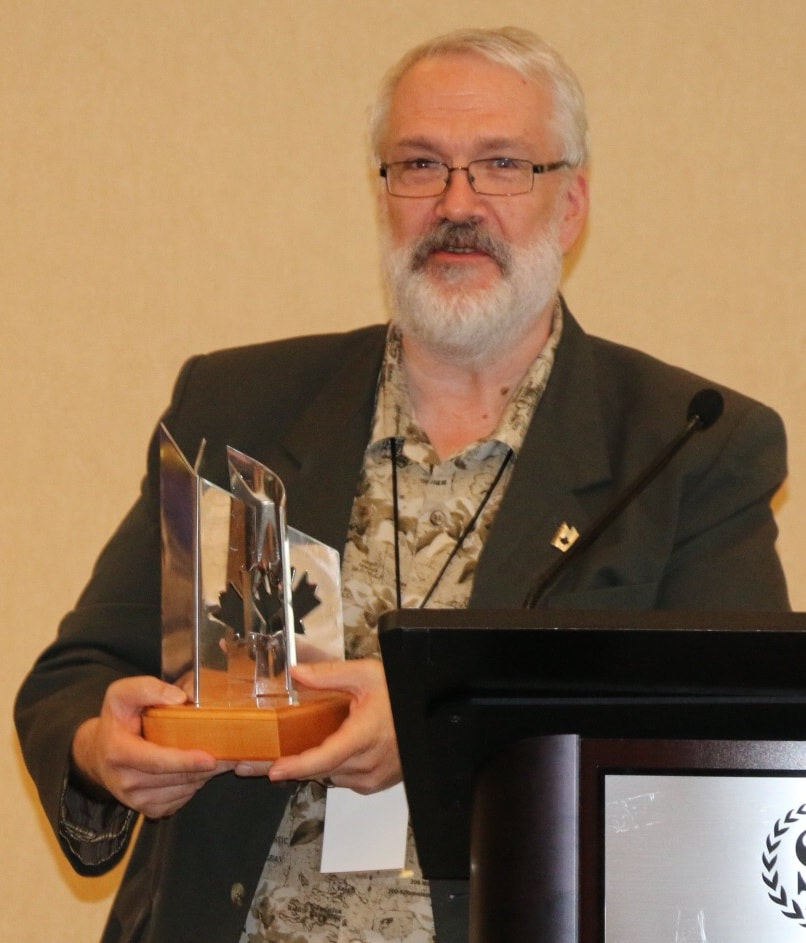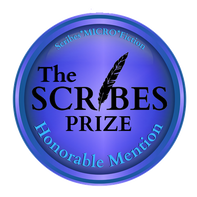|
Robert Runté is Senior Editor with EssentialEdits.ca, where he specializes in Canadian speculative fiction, and freelances at SFeditor.ca. A former professor, he has won three Aurora Awards for his literary criticism and currently reviews for the Ottawa Review of Books. The late Dave Duncan called him "the best editor I've ever worked with" and willed his incomplete manuscripts to Robert to finish. (Two of these novels are now in press.) During Dr. Runté's career as an academic, he co-edited Tesseracts5 an anthology of original Canadian speculative fiction, and Thinking About Teaching, a popular university textbook. One of his essays from that text is still used in university courses and has been downloaded over 30,000 times. He also published The NCF Guide to Canadian Science Fiction and Fantasy and Writing Strategies for Thesis and Dissertations as free online resources. As a thesis supervisor and committee member, he has helped students write award- and scholarship-winning theses, and two of the theses he supervised were subsequently published as books. More career details can be found on his full CV. In terms of his own writing, his short fiction has been published over 80 times in a variety of venues. Six of his stories were reprinted in "best of" collections and one story was short listed for an Aurora Award. He claims to be making the necessary revisions to his novel but editing other people’s books is obviously way easier. You can see Robert in this brief video about acquiring and developing books for Five Rivers Publishing, presented at the launch of Joe Mahoney's A Time and a Place; or listen to his Keynote at When Words Collide Festival on English teachers, fan fiction, and the future of publishing. |
Recent publications:
- "An Isolated Case", Occult Detective Magazine #10, Summer 2023, pp. 157-167.
- "Inuksuk", Metastellar, May 31, 2023. [Free to read online]
- First Day on Night Shift", On Spec Magazine, Vol 33, #1, Issue #123, May, 2023, pp 6-16.
- "Day Three", The Flash Fiction Podcast, Manawalker Studios, March 16, 2023. [Free to listen to online.]
Interview with Robert Runté
about his story "Cabin Fever"
Honorable Mention for The Scribes Prize
What draws you to the micro-fiction format?
Karen Schauber invited me to contribute a 500-word flash fiction to The Group of Seven Reimagined: Contemporary Stories Inspired by Historic Canadian Paintings. It was the first time I attempted a complete story in such a short format, and editor Karen was an immense help tightening my drafts. Once I had successfully completed that task, I thought, well, why stop there? Drabbles called to me. I almost immediately became addicted to the form, and write regularly for ScribesMICRO and other 100-word markets. Of course, the real motivation for concentrating on short and micro-fiction is as an excuse to avoid working on the novel.
Who are some authors that inspire you?
My favorite authors are Matthew Hughes, Dave Duncan, Guy Gavrial Kay, and John Linwood Grant. I highly recommend any of their books, but particularly Hughes What the Wind Brings, Duncan’s Man of His Word Series, Kay’s Tigana, and Linwood’s The Assassin’s Coin. None of them publish micro-fiction, though.
What's next on the horizon for you?
I’m trying to motivate myself to work on the second draft of my novel, but given the earliest outline is dated 1971, I first put pen to paper in 2008, and finished the first draft in 2016, no one is expecting me to be done anytime soon. As an editor, I am frequently frustrated when my clients resist doing the work to make their book the best it can be. As a writer, I totally get it.
You're better known as a speculative fiction editor than as a writer. How has being a writer helped you be a better editor and vice versa?
Being an editor absolutely hasn’t helped me be a better writer. One cannot editor themselves, at least not completely. I sincerely believe everything I write is either hilarious or edge-of-the-seat action. It takes seeing my beta readers face-palm to realize there may still be some areas that could use refinement.
But being a writer has absolutely made me a better fiction editor. As a writer myself, I feel their pain when I ask them to take out a redundant character, or develop the subtext, or rewrite whole chapters. I suddenly understood why making even ‘easy’ changes can feel like way too much work sometimes.
Karen Schauber invited me to contribute a 500-word flash fiction to The Group of Seven Reimagined: Contemporary Stories Inspired by Historic Canadian Paintings. It was the first time I attempted a complete story in such a short format, and editor Karen was an immense help tightening my drafts. Once I had successfully completed that task, I thought, well, why stop there? Drabbles called to me. I almost immediately became addicted to the form, and write regularly for ScribesMICRO and other 100-word markets. Of course, the real motivation for concentrating on short and micro-fiction is as an excuse to avoid working on the novel.
Who are some authors that inspire you?
My favorite authors are Matthew Hughes, Dave Duncan, Guy Gavrial Kay, and John Linwood Grant. I highly recommend any of their books, but particularly Hughes What the Wind Brings, Duncan’s Man of His Word Series, Kay’s Tigana, and Linwood’s The Assassin’s Coin. None of them publish micro-fiction, though.
What's next on the horizon for you?
I’m trying to motivate myself to work on the second draft of my novel, but given the earliest outline is dated 1971, I first put pen to paper in 2008, and finished the first draft in 2016, no one is expecting me to be done anytime soon. As an editor, I am frequently frustrated when my clients resist doing the work to make their book the best it can be. As a writer, I totally get it.
You're better known as a speculative fiction editor than as a writer. How has being a writer helped you be a better editor and vice versa?
Being an editor absolutely hasn’t helped me be a better writer. One cannot editor themselves, at least not completely. I sincerely believe everything I write is either hilarious or edge-of-the-seat action. It takes seeing my beta readers face-palm to realize there may still be some areas that could use refinement.
But being a writer has absolutely made me a better fiction editor. As a writer myself, I feel their pain when I ask them to take out a redundant character, or develop the subtext, or rewrite whole chapters. I suddenly understood why making even ‘easy’ changes can feel like way too much work sometimes.
